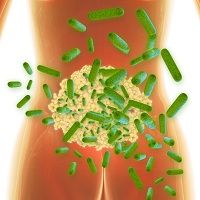Article
Effective Therapy Discovered for Ulcerative Colitis
Author(s):
The corticosteroid beclomesthasone diproprionate (BDP) can successfully treat patients afflicted with active mild-to-moderate ulcerative colitis (UC).

The corticosteroid beclomesthasone diproprionate (BDP) can successfully treat patients afflicted with active mild-to-moderate ulcerative colitis (UC).
While BDP is a powerful corticosteroid drug typically used to prevent and control asthma symptoms, it had also been licensed for UC treatment combined with 5-aminosalicylates — the first line of therapy for maintaining IBD remission.
Published in The American Journal of Gastroenterology, the study conducted by an international research team compared the efficacy and safety of topical BDP to prednisone (PD), a synthetic corticosteroid drug with immunosuppressive properties.
A total of 282 patients were randomized to either receive BDP-prolonged release tablets (5mg once daily/4 weeks and every alternating day for an another 4 weeks) or be given oral PD (40mg once daily/initial 2 weeks tapered on 10mg every 2 weeks throughout the 8-week timeframe).
Results showed after the 4-week mark, the Disease Activity Index (DAI) was 64.6% for the BDP patients compared to the 66.2% found in the prednisone group. This indicated that BDP was actually not inferior.
The research team commented in a news release, “No safety signals in both groups were detected concerning vital signs and hematochemical parameters. “
Furthermore, the study confirmed that both prolonged release BDP and prednisone were effective therapies for mild-to-moderate UC treatment.





